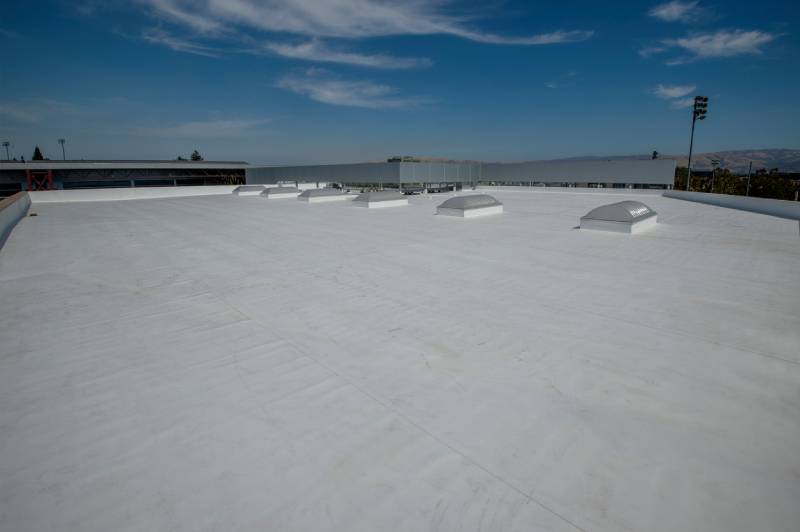Waterproofing In San Francisco – Roof Membranes and Waterproofing Systems
Roof membranes and waterproofing in San Francisco are vital for protecting buildings from water damage, especially in regions where unpredictable weather and coastal conditions can pose significant challenges. However, various types of roof membranes and waterproofing systems can fail if not properly maintained. Understanding these potential issues and how to prevent them is crucial for preserving the integrity of your building. Here, we delve into the common problems associated with different roof membranes and waterproofing systems and provide tips on how to maintain them effectively.
Types of Roof Membranes and Their Issues
1. EPDM (Ethylene Propylene Diene Monomer) Membranes: EPDM membranes are popular due to their durability and resistance to UV radiation. However, they can experience issues such as:
- Punctures and Tears: EPDM membranes are susceptible to punctures from sharp objects and can tear over time, especially in high-traffic areas.
- Shrinkage: Over time, EPDM can shrink, leading to gaps at seams and edges, which can allow water infiltration.
2. TPO (Thermoplastic Olefin) Membranes: TPO membranes are known for their energy efficiency and reflectivity. Common problems include:
- Seam Failures: TPO seams can fail if not properly welded, leading to leaks.
- UV Degradation: Prolonged exposure to UV rays can degrade the membrane, causing it to become brittle and crack.
3. PVC (Polyvinyl Chloride) Membranes: PVC membranes are highly resistant to chemicals and fire. However, they can face issues like:
- Plasticizer Migration: Over time, plasticizers can migrate out of the membrane, causing it to lose flexibility and become brittle.
- Chemical Incompatibility: PVC can be damaged by certain chemicals, limiting its use in specific environments.
4. Modified Bitumen: This membrane type combines asphalt with plastic or rubber additives for enhanced performance. Issues include:
- Blistering: Trapped moisture can cause blisters to form, compromising the membrane’s integrity.
- UV Damage: Without proper surfacing, modified bitumen can degrade under UV exposure.
Waterproofing Systems and Their Common Failures
Waterproofing systems are designed to prevent water ingress, but they can fail due to:
- Improper Installation: Poor installation practices by an inexperienced waterproofing contractor can lead to system failures.
- Aging and Weathering: Over time, waterproofing materials can deteriorate, losing their effectiveness.
- Clogged Drains: Blocked drainage systems can cause water to pool on the roof, leading to leaks and membrane damage.
Preventive Measures and Maintenance Tips
1. Regular Inspections: Routine inspections by a professional Bay Area waterproofing contractor can identify potential issues before they become significant problems. Inspections should focus on checking seams, flashings, and any signs of wear and tear.
2. Prompt Repairs: Address any detected issues immediately to prevent them from worsening. This includes repairing punctures, sealing seams, and fixing any drainage problems.
3. Proper Installation: Ensure that your roof membrane and waterproofing systems are installed by experienced professionals who adhere to manufacturer guidelines and industry best practices.
4. Protective Coatings: Applying reflective coatings to membranes can protect them from UV damage and extend their lifespan. These coatings can also improve the energy efficiency of the building.
5. Cleaning and Maintenance: Regularly clean the roof surface to remove debris and prevent clogs in the drainage system. Keeping the roof clear of obstructions ensures proper water flow and reduces the risk of water pooling.
6. Upgrading Materials: Consider upgrading to higher-quality materials or newer technologies that offer better performance and longer lifespans.
Consult a Bay Area Waterproofing Contractor
In San Francisco, where weather conditions can be challenging, maintaining your roof membranes and waterproofing systems is essential for the longevity and safety of your building. By partnering with a reputable Bay Area waterproofing contractor and adhering to a proactive maintenance schedule, you can prevent common issues and ensure that your roof remains watertight. Regular inspections, prompt repairs, and the use of protective measures will go a long way in safeguarding your investment and providing peace of mind.


